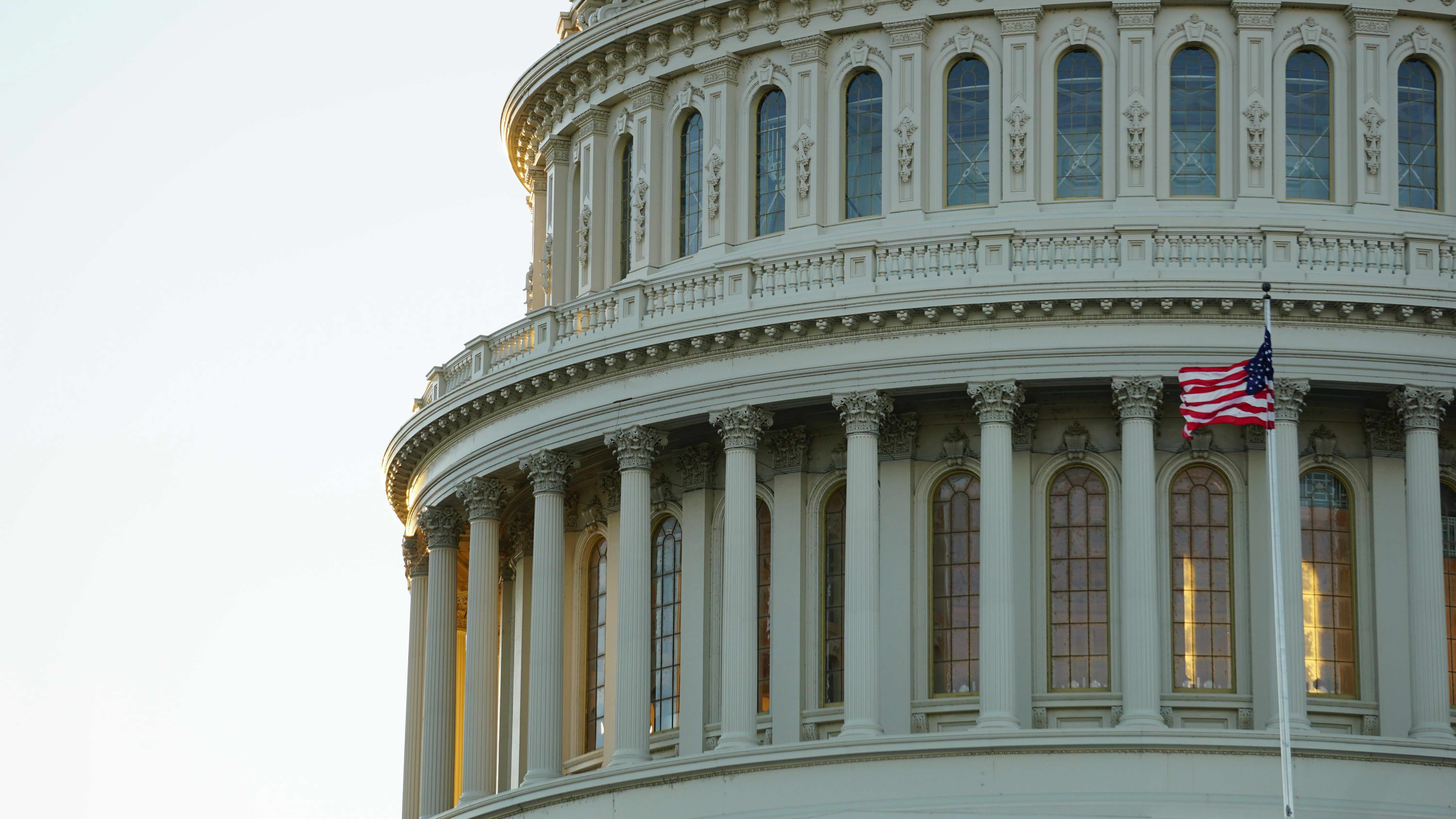Bitcoin As Property
The Law Commission of England and Wales just published a 500+ page paper detailing the relationship between property rights, bitcoin, and other digital assets. BPI Fellow Craig Warmke covers its main argument and explains why it matters for bitcoin.

The Law Commission and the Digital Asset Project
Let’s start with the Law Commission itself. In 1965, the Parliament of the United Kingdom created the Law Commission as an independent body to recommend proposals for law reform. The Commission aims to ensure that “the law is fair, modern, simple, and cost effective.” The Law Commission has four commissioners, including Professor Sarah Green. Notably, she co-edited a groundbreaking 2019 volume on the legal implications of cryptocurrencies. So it’s little surprise that she’d seek to clarify legal issues surrounding bitcoin and other digital assets. This report is a strong step toward better policy for bitcoin and digital assets in the UK.
The consultation paper recommends two core changes to existing law. First, it recommends carving out a third category of property to apply to crypto-tokens, including bitcoin. Second, it proposes carving out a notion of control for crypto-tokens that runs parallel to the notion of physical possession for physical assets. As I’ll explain shortly, the recommended changes are plausible and favorable.
Why is this important? Bitcoin itself doesn’t give us property rights.

As Bitcoin Policy Institute fellow Troy Cross correctly observes, bitcoin’s relationship to property is, in this way, similar to the relationship between curtains and privacy. Curtains and bitcoin each provide or protect some good—but neither provides the right to have the good. Instead, bitcoin’s cryptography gives to all and only those who have a private key the power to move quantities of bitcoin associated with that private key. Having such a power doesn’t mean the legal system will recognize claims to own bitcoin. But life as a bitcoin user becomes less fraught, and more just, when our governments decide to recognize as property that which we ourselves claim to own. And the further recommended distinction between ownership and control could help the legal system plausibly decide the kinds of property disputes that we’ll inevitably see in the coming years.
The Law Commission’s paper is also important because it stands a good chance of being adopted in the UK and abroad. Granted, the UK Parliament doesn’t automatically enshrine the Law Commission’s recommendations into law. But data from the Law Commission’s 2020-21 Annual Report reveals that two thirds of their reports have been implemented by the government. Moreover, due to the UK’s complex historical ties to other countries, a new law in the UK can have global ripple effects. And, finally, in the instance of digital asset policy, signs suggest the right people are listening or will listen to the Law Commission. For example, in an April 2022 speech by then Economic Secretary to the Treasury, John Glen said:
English Law and our world-leading legal services and courts are already a huge asset, and can play a big part in making the UK an attractive hub for all things digital and for new technologies more generally.
Then, barely a paragraph later, Glen specifically thanks the Law Commission “for all the work they’ve done on digital assets and smart contracts.” Furthermore, around the same time, then Chancellor of the Exchequer, Rishi Sunak, said that it’s his “ambition to make the UK a global hub for cryptoasset technology.” At this point, Sunak is now in the running to be the UK’s next Prime Minister. His competitor, Liz Truss, has also recommended a more hands-off regulatory approach to cryptocurrencies.

Bitcoin should see favorable regulation whoever wins.
As Emily Nicolle noted, a more senior judge, Geoffrey Vos, recently delivered a speech on digital assets at the Bank of England saying that the country is “in a period of very significant opportunity.” He went on: “If English law and the UK’s jurisdictions can provide the legal backdrop of choice to DLT systems, a big economic prize will follow.” In the wake of the Law Commission’s paper, and the UK’s more favorable environment, a top crypto VC half-seriously joked in private about moving to the UK.
So, overall, we now have favorable, deep, and important recommendations that stand a good chance of being implemented in several countries around the world.
The Paper
The U.S.’s current regulatory regime doesn’t seem to consult experts, especially those with knowledge about how bitcoin works and why it’s important worldwide. And, lately, high-profile lawmakers and regulators seem focused on attacking the industry.
By contrast, the UK Government asked the Law Commission for recommendations that would accommodate bitcoin and other digital assets "in a way which allows the possibilities of this type of technology to flourish." And rather than ignore the experts, the Law Commission consulted them—writers like Gigi and researchers like Hasu. And several academics, including myself, served on the advisory panel alongside Cobie, a thoughtful trader. The paper also cites industry insiders like Jameson Lopp and Nic Carter. The Law Commission’s paper is so great, in part, because the authors clearly didn’t come to the table with politically motivated conclusions but instead simply followed the arguments where they led. This is why the report appeals to me as a philosopher. There are lessons here for the United States.
A New Category of Personal Property
The paper's main claim is that the UK needs a new category of personal property for bitcoin because it doesn't fit neatly into the two traditional categories. Those two categories are “things in possession,” understood as tangible things like tables and baseballs, and “things in action”—things like debt or shares in a company that require legal action to enforce property claims. Bitcoin isn’t tangible, so it doesn’t neatly qualify as a thing in possession. Nor does owning bitcoin require legal action to claim or enforce.
So the authors propose a third category of personal property. A thing falls under this third category if:
(1) it is composed of data represented in an electronic medium, including in the form of computer code, electronic, digital or analogue signals,
(2) exist independently of persons and exist independently of the legal system; and
(3) it is rivalrous, which roughly means that use “by one person necessarily prejudices the ability of others to make equivalent use of it at the same time.”
Each of these conditions is subject to a number of caveats and careful argumentation. Given the overall argument in the paper, the conditions seem reasonable to me, both individually and collectively.
Control vs. Possession
We don't always possess the things we own. Sometimes, other people custody our assets or hold them as collateral. We own but don’t possess, in these cases. But in English law, the concept of possession often connotes that possessable things are tangible—that they have mass and take up space. However, bitcoin has no mass or location. What, then, should we say about the bitcoin that others custody or receive as collateral? Here, the authors propose a concept of control for digital assets that runs parallel to the concept of possession for physical assets. They propose that someone controls a crypto-token when they can:
(1) exclude others from it;
(2) put it to the uses of which it is capable (including, if applicable, to effect a passing of, or transfer of, that control to another person, or a divestiture of control); and
(3) identify themselves as the person with the abilities specified in (1) to (2) above.
As Rohan Grey noted on Twitter, the concept of control thus-characterized won’t resolve competing claims in edge cases, like one where two people each have immediate and separate access to a private key that would unlock a bitcoin UTXO. But, as Twitter user gonbegood answered, factual control is a helpful but not necessarily determinative indicator in these types of disputes, just like similar cases of possession. For example, think of cases where two people each possess half of something that’s been physically split, or cases where they each have a key to something in a deposit box, or cases where neither claimant possesses the thing because it’s in escrow. The paper briefly discusses edge cases like this in the context of multisignature arrangements in Chapter 11.
They then extend these insights to all sorts of issues;
NFTs (Ch. 15)
Custody (Ch. 16)
Collateral arrangements (Ch. 18)
The paper is philosophically deep, rigorous, and thorough. Chapter 10 and the Appendices will especially appeal to those interested in bitcoin.
Highlights
It would take too long to explain all the important parts and how they fit into the paper’s main argument. Instead, I’ll simply note a few highlights.
On Self-Custody
“We hope that recognizing this distinction will help to cement the ability of persons to hold crypto-tokens in self-custody arrangements as a foundational touchstone of the law of England and Wales.” (13.127, pg. 276)
Damages Awarded in Crypto-tokens
With an exchange hack or insolvency, lenders or depositors might receive a portion of their value back in pounds sterling or, in the U.S., the dollar. But if you receive the value in dollars dated to the suspension of withdrawals, say, and the case takes years to resolve, a customer may have been much better off receiving a portion of the original crypto-tokens that have substantially appreciated in value. At 19.168, pg. 464, the authors “provisionally conclude that there is an arguable case for law reform to provide courts in England and Wales with the discretion to award a remedy (where traditionally denominated in money) denominated in certain crypto-tokens in appropriate cases.
Privacy
Around 12.30 and following (p. 233), the authors favorably discuss privacy-enhancing techniques like CoinJoins. And they explicitly mention the very low percentage of transactions involved in illicit uses (fn. 1031) and the good reasons other than illicit use that people may want to have financial privacy (12.34). This contrasts starkly with the U.S. Treasury’s recent—and, in my view, confused—crackdown on Tornado Cash.
Conclusion
I’ve been describing a “consultation paper.” According to the Law Commission:
…a consultation paper is issued setting out in detail the existing law and its defects, giving the arguments for and against the possible solutions and inviting comments. The paper is circulated widely to all interested individuals and organisation, and to the media. We actively encourage feedback from any interested member of the public, including comments on problems we may not have dealt with or the likely effect of something we have proposed.
The authors of the paper seek feedback from “legal experts, technologists and users.” The deadline to respond is November 4, 2022. They prefer responses through the online form at: https://consult.justice.gov.uk/law-commission/digital-assets-consultation. But they’ll also receive responses through email at digitalassets@lawcommission.gov.uk.
Please keep in mind the paper’s stated aim:
The reforms also aim to help to achieve the UK Government’s stated goal of the jurisdiction of England and Wales becoming a global hub for digital assets, and in particular, for crypto-tokens and crypto-token systems.
And, finally, here again are the main links:
Law Commission's Digital Asset Project Website
Consultation Paper (549 pages)
Summary Paper (20 pages)



.svg)





